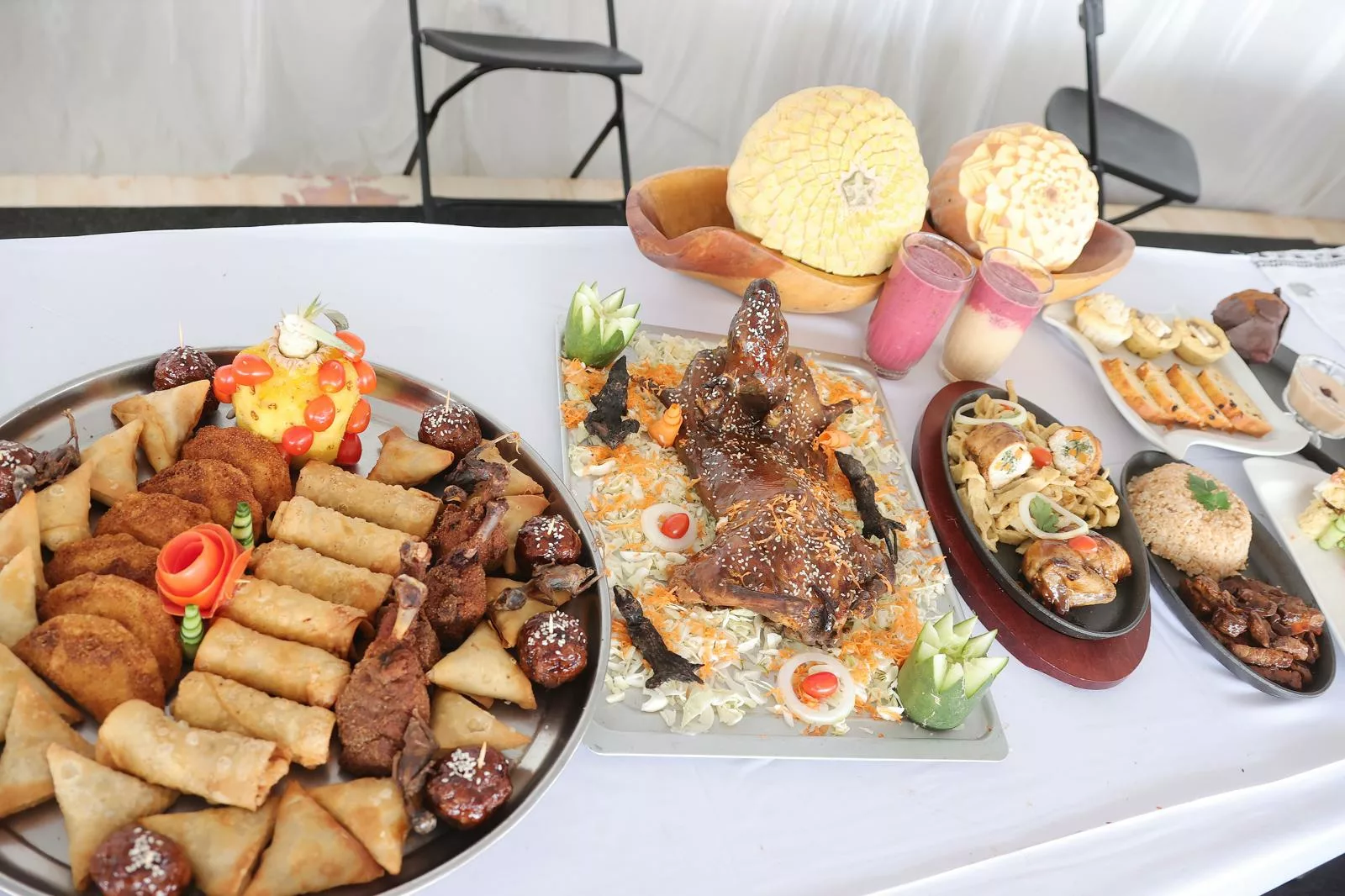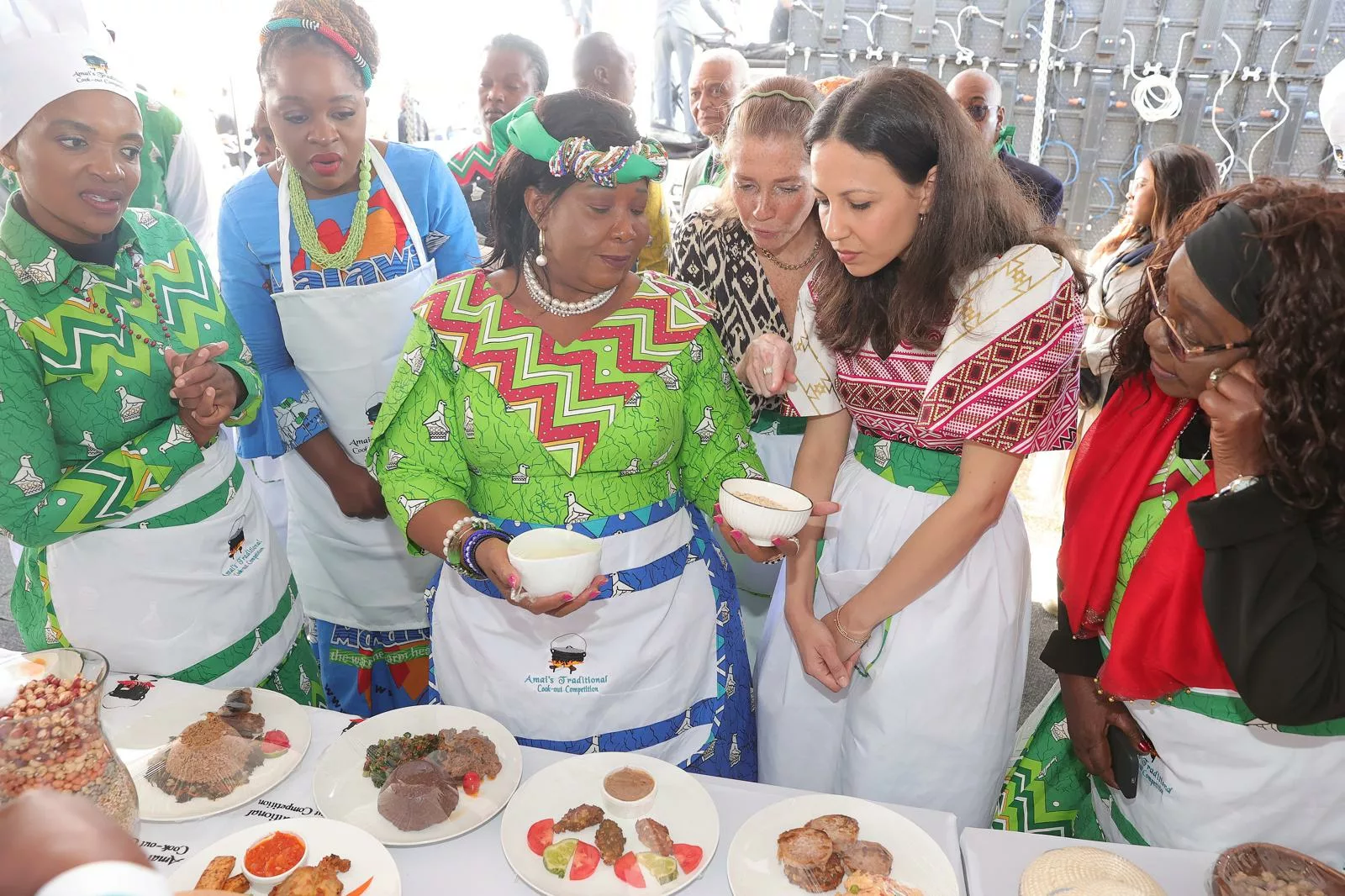|
Getting your Trinity Audio player ready...
|
Writes Catherine Murombedzi
In nature’s nurture, open your eyes to see the healthy habits from the past. Before the 1960s, lifestyle diseases were minimal. People grew their own food and lived healthy lifestyles. They worked in the fields. They were physically fit. Sedentary work was also taken when shelling nuts after harvest.
Grandmothers were the baby minders as families lived in extended communities. The young boys herded cattle, and the women and girls did the homestead chores. Men were hunters and builders, and everyone participated in farming. There was a distinct division of labour. Families sold surplus harvests while keeping enough to last to the next harvest.
Barter trade was common, and families with excess grain exchanged in return for what they needed. Even a poor family had chickens. The well-to-do had cattle, sheep, goats, and donkeys for draught power. Livestock was wealth.
Every homestead had dogs for protection from intruders, or impending danger, and most importantly, they were hunting dogs. While boys herded livestock, hunting expeditions simultaneously took place. Wild fruit was in abundance, keeping them well-nourished and healthy. It was common to bring home a hare or two. A buck or wild pig was also snarled with success.
Every household had a duty to bring in stipulated grain to the Chief. A community granary called Zunde Ramambo was kept at the Chief’s homestead. The Zunde Ramambo fed the elderly, orphans, and people with disabilities. This community initiative meant everyone took care of the less privileged. The concept that: “I am, because we are” showed the beauty of Ubuntu.
Why were poor lifestyle-induced conditions low? People did not eat processed foods. The grinding mill processed the maize with its roughage. No part was extracted. Today, maize oil sees the germinating part extracted for other purposes. In years gone by, triple-refined cooking oil was not used. Natural animal and vegetable oils were sufficient.
Today, some selective sadza eaters shun wholesome maize meal preferring the super refined. Super refined means the roughage has been removed, leaving it super white. The whiter the sadza, the less nutritious it is.
Peanut butter was homemade, and the unprocessed oil was kept while the peanut butter was kept for relief, rice, and porridge use. When the forests smiled, the hunters would bring home eland, bushbuck, or wild pig. Some of the meat was cooked fresh with the most dried and salted to preserve for future use. Evening time, after the main meal, people had snacks in the form of pumpkin seeds, and nuts all roasted. During the day, a refreshing healthy frothy drink, maheu, made from small grains saw the day through. Dried fruits like masau, nyii, matohwe, (snout apple), and dried sweet cane were eaten by both the old and young. Food reserves were kept safely in the granary.
Sadza was not only from maize. Rapoko, millet, or sorghum made sadza varieties. The small grains made home brewed beer with most consumed at family level and community level. Mutakura, made from dried maize, cowpeas, and groundnuts, was a delicious afternoon mixed dish.
Small grains attract flocks of birds to fields. The birds could deplete a field in no time. The farmers used nets to catch the birds. The birds provided protein-filled meals with surplus dried for future use. The meat was kept in air-tight big clay pots called hari. Nutritious natural vegetables, mowa, mushrooms, mutsine (blackjack), and many others were part of the daily meals. Excess was dried and stored for the dry season.
The nearly forgotten good old days have been awakened by the First Lady, Dr Auxillia Mnangagwa through her countrywide Traditional Gastronomy Cuisine.
The national event has received keen interest across the nation with all ages participating in the National Cookout Competition. The competition starts at the district level and goes to the provincial and then National levels, where the provincial winners showcase their culinary arts.
Local hotels have also shown interest in the widening array of local dishes now served. From maheu, sadza rezviyo, road runner chickens, rice in peanut butter, and pumpkin porridge known as nhopi – all make it onto the five-star hotel menu cards.
Amai Mnangagwa launched the traditional meal cookout competition in Chinhoyi, Mashonaland West, in 2019. It has grown from strength to strength. After the successful growth, she handed the program over to the Ministry of Tourism and Hospitality Industry.
The host Ministry on Africa Day invited Amai Mnangagwa, the tourism patron, as the guest of honor in Inyanga for the grand finale. The cookout competitions, aimed at promoting gastronomy tourism and the uptake of indigenous dishes, coincided with the Africa Day commemorations on 25 May.
The First Lady, being hands-on, prepared several dishes, although not as a competitor. She prepared millet sadza, traditional brown rice, road runner chicken, offals from a goat, known as zvinyenze, goat stew, a mixture of vegetables, and beef stew locally known as Highfields, among many more in the stipulated time. Highfields stem from a high-density suburb in the capital city with the same name. It was popular and made the dinner meals for many families in the suburbs.

The First Lady appreciated the thousands of people who attended Amai’s traditional meal national cookout competition in Nyanga. Also in the First Lady’s kitchen were Malawi’s Minister of Tourism, Vera Kamtukule; Ambassadors accredited to Zimbabwe; Ministers of State; Cabinet Ministers and Traditional Chiefs’ wives.
“It is exciting that Zimbabwe has naturally embraced this concept as evidenced by the overwhelming participation at provincial cookout competitions as well as the increased levels of consumption of traditional foods in our country.
“Traditional gastronomy is our heritage, being a sustainable way of life followed by our forefathers who consumed foods that grew within the confines of our climate. Food was prepared from our abundant animals, herbs, and trees occurring naturally in our environment, thereby boosting our immune systems,” she said.
Amai Mnangagwa said it was after noticing the prevalence of contemporary eating habits based on foods that do not grow in the country’s environment, that she felt the need to go back to roots.
Zimbabwe’s gastronomy promotion activities attracted the attention of the international community. She was invited to the UNWTO Forum on Gastronomy Tourism in Spain and the UK to share the Zimbabwean experience in promoting traditional cuisine. Amai’s initiative awakens national pride: Back to roots, embracing traditional foods for healthy lifestyles.
The return to traditional cuisine is a way to promote health and well-being at a national level. With the global village health alert, she pioneers her country’s original diet for others to be health conscious.
Dr Silas Phiri, a medical doctor, said processed foods and oils increased the risk of heart disease.
“Refined oils are often high in unhealthy fats, which can increase cholesterol levels and heart disease risk. When refined, the oils are stripped of natural nutrients and vitamins. Consuming refined oils can lead to chronic inflammation, potentially causing diseases like arthritis, diabetes, and cancer. Some refined oils contain harmful compounds like polycyclic aromatic hydrocarbons (PAHs) and heterocyclic amines (HCAs), which have been linked to cancer. Refined oils may contain harmful trans fats, which can negatively affect brain function and increase depression risk,” said Dr Phiri.
“Processed foods are often stripped of fiber, which is essential for healthy digestion and satiety. Processing reduces natural vitamins and minerals. Processed foods often lack antioxidants, which help protect against cell damage and chronic diseases. While whole foods contain phytochemicals, which have various health benefits, these are often lost in processing,” said Dr Phiri.
Processed foods often lack the natural satiety and satisfaction that comes from eating whole foods.
Opting for whole, unprocessed foods as much as possible can help ensure one gets the nutrients and benefits that the body needs. It’s never too late to take the right turn to a healthy, conscious diet.
Feedback: [email protected]






